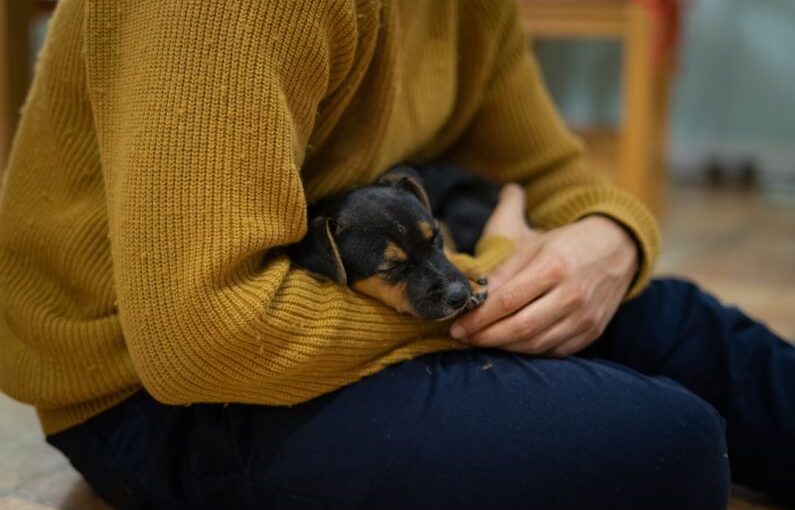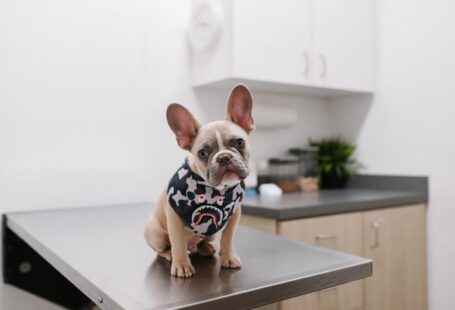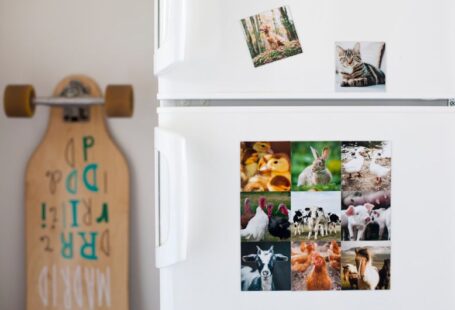Welcoming a new puppy into your home is an exciting and joyous occasion, but it can also be a little overwhelming for your furry friend. The first 48 hours are crucial in helping your puppy adjust to their new surroundings and feel comfortable in their new environment. By following a few simple tips and strategies, you can make this transition as smooth as possible for your new four-legged family member.
**Creating a Safe Space**
One of the first things you should do when bringing your puppy home is to set up a designated space for them. This area should be quiet, comfortable, and free from any potential hazards. Consider using a crate or playpen to give your puppy a sense of security and a place to retreat to when they need some alone time. Make sure to include a cozy bed, some toys, food and water dishes, and a potty area within their designated space.
**Establishing a Routine**
Puppies thrive on routine, so it’s important to establish a consistent schedule for feeding, potty breaks, playtime, and rest. This will help your puppy feel more secure and confident in their new environment. Be sure to take your puppy outside frequently to help them become familiar with their potty area and to prevent accidents inside the house. Praise and reward your puppy when they go potty outside to reinforce good behavior.
**Socialization and Bonding**
During the first 48 hours, it’s essential to spend as much time as possible bonding with your puppy. This will help build trust and strengthen your relationship with them. Take the time to play with your puppy, cuddle with them, and introduce them to other family members and pets in a calm and positive manner. Socialization is crucial for your puppy’s development, so be sure to expose them to different sights, sounds, and experiences to help them feel more confident and well-adjusted.
**Introducing Basic Commands**
Even though your puppy is still young, it’s never too early to start teaching them basic commands such as sit, stay, and come. Use positive reinforcement techniques such as treats and praise to reward your puppy for good behavior. Keep training sessions short and fun to prevent your puppy from becoming bored or frustrated. Consistency is key when it comes to training, so be patient and persistent with your efforts.
**Monitoring Health and Well-being**
It’s important to keep a close eye on your puppy’s health and well-being during the first 48 hours. Monitor their eating, drinking, and potty habits to ensure they are adjusting well to their new diet and routine. Watch for any signs of illness or distress, such as lethargy, vomiting, diarrhea, or excessive whining. If you have any concerns about your puppy’s health, don’t hesitate to contact your veterinarian for advice and guidance.
**Building Trust and Confidence**
Above all, the first 48 hours are about building trust and confidence with your new puppy. Be patient, understanding, and loving towards your furry companion as they navigate this new chapter in their life. Remember that it may take some time for your puppy to fully adjust to their new surroundings, so be supportive and encouraging every step of the way. With time, patience, and plenty of love, your puppy will soon feel right at home in their new environment.
In conclusion, the first 48 hours are a critical period in helping your puppy adjust to their new home. By creating a safe space, establishing a routine, socializing and bonding, introducing basic commands, monitoring health and well-being, and building trust and confidence, you can set the stage for a successful transition. Remember to be patient, understanding, and loving towards your puppy as they acclimate to their new surroundings. With your guidance and support, your new furry friend will soon feel like a cherished member of the family.





